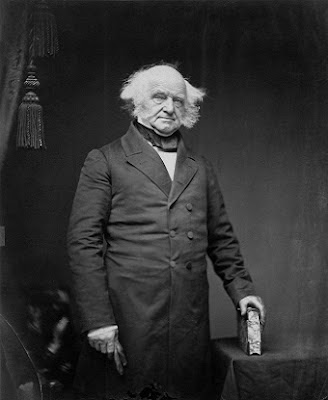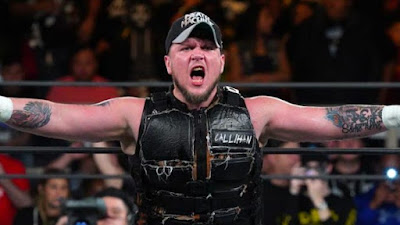Top 10 Third Party Presidential Candidates Who Did Surprisingly Well
Honorable Mentions
John Bell
William Wirt
John Floyd
Henry A. Wallace
John P. Hale
Gary Johnson
One of the most well known names to run in multiple presidential elections in U.S. History, Eugene Victor Debs was a charismatic union leader and union activist before he adopted the ideas of socialism.
By the turn of the 20th century, Debs made his first bid for the presidency under the Socialist Democratic Party of America where he received less than 1% of the vote, however his luck would turn around as his next two runs in 1904 and 1908 saw Debs receive around 3-2% of the popular vote but still no electoral votes.
In 1912, Debs and the Socialist Party had their best chance to win with Debs coming in second place in terms of getting the electoral votes in Florida but ultimately Debs didn't win any electoral votes but pulled away with 6% of the popular vote which was the best performance for the party in a presidential election.
Eugene Debs would run for office one last time in 1920 while he was serving time in prison...You heard that right, As you can imagine Debs didn't get any electoral votes but ended up getting 3.4% of the popular vote which was still a good showing for someone campaigning whilst locked inside a prison cell.
Before Donald Trump, there was another race baiting, populist sounding candidate running for office and his name was George Wallace, who much like Strom Thurmond before him was too not pleased with the idea of ending segregation especially in the South; After doing well in the primaries in 1964, the former governor of Alabama decided to leave the Democrats and began running under a third political party.
Wallace got the nomination for the newly created 'American Independence Party' and ran against Richard Nixon and Hubert Humphrey in the chaotic election of 1968; While the former southern governor continued to fan the flames of racial tensions with his speeches and many rallies on the campaign trail, he also appealed to many blue collar workers who were getting sick and tired of having their problems tossed aside by the two major parties...Are you starting to sense a theme here?
When the dust settled, George Wallace ended up with 13.5% of the popular vote whilst getting 46 electoral votes from some of the places that had voted for Thurmond in 1948 while also getting votes from the state of Georgia and Arkansas.
Since the election of 1968, no third party has been able to receive any electoral votes in a presidential election making George Wallace the last third party candidate to achieve this feat.
The term 'Populist' describes those politicians who focus on issues that are affecting the middle and poor classes in America due to the establish elite ignoring the concerns of the common man for many years.
This can be traced all the way back to the 19th century when a man by the name of James B. Weaver ran in two presidential elections hoping to bring these issues to the forefront of American politics.
Back in the election of 1880, James Weaver first ran with the Greenback Party, a party who's main focus among other things was the redistribution and usage of paper currency referred to as 'Greenbacks' to reduce the inflation that was occurring within the country; Sadly the party was only able to get 3.4% of the popular vote but there Populistic ideals would carry for years to come.
Upon officially creating the People's Party aka the Populist Party in 1891 and winning several local elections, The Populist nominated James B. Weaver as their candidate in the 1892 presidential election against former Democratic president, Grover Cleveland and incumbent Republican president, Benjamin Harrison.
By the end of the election, Weaver did far better in his second outing getting 8.8% of the popular vote and receiving 22 electoral votes in the states of Nevada, Idaho, North Dakota, Colorado, Kansas and a faithless electoral vote from Oregon.
While the Democratic party would soon adapt the populist ideas in the following elections, the performance by Weaver and the People's Party in 1892 made them the only third party to get electoral votes between 1860 and 1912.
In February of 1992, a Texas billionaire and businessman named Henry Ross Perot appeared on Larry King Live and announced his decision to run as an independent candidate in the upcoming 1992 election, provided his supporters could be able to get his name on the ballot in all 50 states.
Perot may have been a conservative but he ran on a mostly Populist agenda which included things like opposing NAFTA and the outsourcing of U.S. jobs overseas, balancing the federal budget, gun control and the implementation of what is now referred to as Digital/E-Democracy in town halls.
At one point Perot was polling around 39% of the vote compared to Bill Clinton and George HW Bush who had 29% and 31% respectively, but in July Perot made the unexpected decision to withdrawal from the race over the belief that the Bush administration would release doctored photos that would ruin his daughter's soon-to-be wedding.
However, Perot got back into the race in October just a month after he got qualified to be on the ballot in all 50 states. Perot became the first and only third party candidate to participate in the Presidential Debates alongside his Democratic and Republican opponents and by the end of the 1992 election Perot didn't get any electoral votes but did pull a tremendously large amount of the popular vote for a third party candidate getting 18.9%.
Perot would run again in 1996 as the first candidate for the newly created 'Reform Party', but due ballot laws being changed to stake the deck against the third party candidates, his support wasn't as strong as before but he did get 8.4% of the popular vote which is still high for someone not running as a Democrat or Republican.
While many of the names I've mentioned on this list many have done well for themselves either from a popular or electoral vote perspective, the undisputed gold standard of a successful third party candidate can be seen with Theodore Roosevelt in the election of 1912.
Following his decision not to seek another term, the former POTUS chose his protégé and the Secretary of War, William Howard Taft to continue his progressive ideals following Taft's decisive victory in 1908 however many progressives and Roosevelt himself were dishearten by Taft's more conservative ways of governing as the commander and chief which lead to Teddy challenging Taft in the 1912 Republican Primaries.
Despite winning more primaries and getting more of the delegates, the GOP establishment at the time controlled the convention so much that it was seemingly obvious that William Howard Taft would get the party's nomination; This led to Roosevelt and his supporters to created 'The Progressive Party' also known as 'The Bull Moose Party' after a response Teddy gave to the newspapers claiming he felt as strong as a Bull Moose.
Roosevelt and his progressive Bull Moose Party went up against not only Taft and the Republicans but also Democratic candidate, Woodrow Wilson and Socialist Party nominee, Eugene Debs in an exciting four way race for the presidency.
While Roosevelt didn't win the election, his performance set a record that will never be broken in the history of presidential elections as Roosevelt came in second place with 88 electoral votes and 27% of the popular vote making Teddy the only third party candidate to ever come in second place in a presidential election as Taft came in third with 8 electoral votes and 23% of the popular vote.
Roosevelt's shocking success as a third party candidate in the 1912 election can be seen as one of the greatest by a politician not running with either of the two major parties and for that, Theodore Roosevelt easily takes the top spot on this list.














Comments
Post a Comment